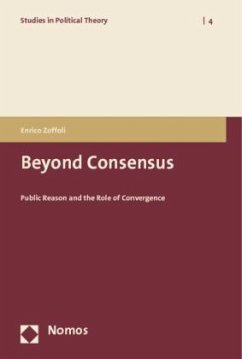In order to treat its members as free and equal citizens, a system of social cooperation must be publicly justified. Typically, public justification is conceived of as a procedure of abstraction, which only aims to identify universally shareable reasons. This book shows that this widespread view should be resisted, on both epistemic and moral grounds. Rather, public reasoning is best understood as a process whereby different non-shareable reasons converge. This alternative justificatory model suggests rethinking issues such as the depth of reasonable pluralism, the function of moral epistemology, the scope of public justification and the relationship between Anglo-American philosophy and discourse theory.
Bitte wählen Sie Ihr Anliegen aus.
Rechnungen
Retourenschein anfordern
Bestellstatus
Storno








